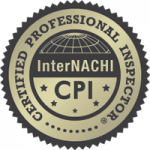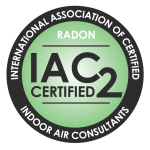First, what is a “soft” home inspection report – and how can it do harm?
Many home inspectors that inspect homes for real estate transactions have built their businesses upon the referrals of real estate salesmen to stay in business. Since real estate salesmen make no money until a home actually sells, some inspectors feel compelled to assist them in selling the house they inspect in the hope for future referrals. To do this, they will ensure that their inspection reports do not “alarm” the prospective home buyer and possibly interfere with the sale of the home – with the hope and expectation of gaining favor and receiving more referrals from the sales agent.
The result is a “soft” report that is of little value to the home buyer who commissions it and potentially harmful to anyone who comes to depend on it. A “soft report” could result in a buyer missing out on important information that could affect their choice to purchase a home. This can lead to a serious financial loss.
The following are a few common methods used by some home inspectors to “soften” their home inspection reports:
“Balancing” the Report
The most common method used to “soften” a home inspection report is to add “positive” things about the home that would be attractive to the buyer. I have had some inspectors tell me that they actually strive to include one positive feature of the home for every material defect that they find in order to “balance” the information.
Most experienced and professional home inspectors already take into account the fact that their client has found features of the home that attract them or they would not have contracted to purchase it. Professional inspectors know that they are hired to describe the home’s condition and report material defects that could affect the health or safety of its occupants as well as the sustainability of the structure.
They will perform this service by providing a home inspection report that is complete, accurate and totally unbiased.
Sandwiching information about hazardous or defective conditions between flowery comments is not the proper way to write a home inspection report.
“It Wasn’t in the Code Book, Back Then“
Another common technique used to minimize a material defect in the mind of a potential buyer is for the inspector or real estate salesperson to point out a serious material defect in the home and then infer or suggest that it is somehow more acceptable since it was not required by the code or building standards at the time the home was built.
Any defect that could result in physical harm to the structure (click here) … or its occupants (click here) … is serious and should be addressed. A home inspector’s job is to bring to his clients’ attention every such issue he observes and to recommend that it be corrected. It is not his job to make excuses for its presence.
Understanding that building codes are simply little more than basic minimum standards of which anything less is illegal … the fact that something harmful may have met or did not meet a code at the time it was built has no relevance to the owner, today.
Estimates
Another way that an inspector can take the “sting” out of a description of a material defect to soften a report is to include an estimate of repair to help the prospective buyer apply what is called “context” to the defect. This is not common to most home inspection reports, but it happens in some cases.
It is … dangerous for the inspector as well as the home buyer (click here) … for the buyer to make purchasing decisions based upon an inspector’s estimates. Many state laws and all standards of practice discourage inspectors from providing repair or replacement estimates.
Estimates can only be accurately provided by a person or business who is currently doing the work and aware of the present costs of materials and labor associated with the project and will often find undiscovered issues that affect the cost of the project once work has begun (click here). Many contracting companies employ professional estimators who are trained and current in the practice of providing them.
“I am not an Alarmist.”
Watch for these code words that home inspectors use to alert interested real estate salesmen that they will write a “soft” home inspection report in exchange for future referrals … something that one court referred to in one recent lawsuit as “consumer fraud”.
Among some home inspectors and the real estate agents they work with is an “understanding” that first-time home buyers are sometimes easy to frighten or “alarm” when they learn of imperfections with a house they intend to buy. Some home inspectors address this as they solicit referrals from real estate agents by advertising themselves as friendly to first-time home buyers and provide an assurance that they do not “alarm” them in the manner that they describe defects in their reports.
Learn more about the bad results that come from this act of “consumer fraud” … from this lawsuit (click here) … that resulted from a soft home inspection report given to a first-time home buyer who got burned.
“Free” Warranties and ” Guaranteed Buy Back” Offers
It makes sense for a real estate salesman to want to take some of the worries out of taking a chance on a new home. Many will encourage or enhance the sale by providing “home warranty services” that may or may not cover items that stop working when the new homeowner takes over the property. Some will offer to buy the house if they can’t sell it … or “buy the house back” if you don’t like it, with (of course) a long list of certain disqualifying conditions.
While most home inspectors are careful to inform their clients that they are not providing or implying a guarantee or warranty through their inspection reports, many will want to impress real estate salesmen with the appearance of assisting them in providing an incentive to buy. Accordingly, they will purchase “90 Day Home Warranties” or provide “Guarantees” that are supposed to cover selected systems within the home against defects for a very low cost ($5 to $15) and will provide them to their clients with paid home inspections.
These low-cost service contracts promising high-end payouts are a common source of complaints with state-level consumer advocacy offices (attorney general, BBB, etc.) and should be carefully scrutinized. Even when they appear to be provided “free of charge”, reliance upon them when deciding to buy a home can be extremely costly.
In addition to the exclusion laden free “warranty” is the recent promotion where some home inspectors offer to “buy back your house” if they miss a defect in their report. If you really … really … believe that your home inspector can afford to “buy back” every house that he inspects charging his $300-ish inspection fee, then go ahead and take comfort in his offer when deciding to buy a home. If, however, you are suspicious as to why he will NOT promise to pay to replace the broken water heater he failed to detect for $500 but is willing to “guarantee” to buy back the house for $300,000.00, instead … look carefully at the hundreds of exclusions that assure that no such transaction can ever take place.
When the home inspector … the person hired and trusted to report things that might be wrong with the house that one intends to buy … begins providing “free” incentives to help the potential buyer decide to purchase the home by addressing future recalls of appliances or “free warranties” should things break, this could indicate that someone other than the home buyers’ interests is being considered.
The use of these so-called “warranties” along with other gimmicks (such as ongoing updates on the recall status of appliances, alarm system evaluations, etc.) assist some home inspectors who wish to solicit additional referrals from real estate salespeople in promoting the sale of the home by furthering the sales agent’s presumption that the prospective buyer will decide to buy the house. Carefully read these “warranties” and “guarantees” to see that they actually provide the intended coverage. Many don’t.
While these gimmicks have little to do with reporting the present condition of the home … they can go a long way in helping a sales agent create a mindset of “ownership” that advances the sale of the home. This is why some inspectors, according to their conversations in private sections of professional forums, promote their use as “marketing tools” to solicit more real estate agent referrals. “Agents love them” is a mantra for those who promote them. One vendor who sells the “We will buy back your house if we miss something” goes as far as to promise participating home inspectors that “every” real estate agent he solicits will provide him with “every” client they serve as a referral. Some home inspectors believe this and are willing to take a shot.
Home buyers should ensure that the company that is representing these service contracts is properly registered with their state and should not hesitate to hold the inspector that provided it to them responsible for the provider’s failure to perform under the contract – since it is being provided as a part of the home inspection service that they paid for. Here is a lawsuit where the home buying victims of a “soft” home inspection report with a 90-day warranty did exactly that … (click here). A “We will buy your house back” guarantee would also exclude the conditions described by the duped homeowners in this suit.
Caveat emptor.
What Should You Do (and NOT Do)?
Do your best to seek an experienced, full time and certified inspector, but be aware that even highly experienced and “credentialed” home inspectors can still be found to participate in writing soft reports or using gimmicks in return for future referrals.
While I personally know some excellent home inspectors who have scaled down their businesses for various reasons and continue to do quality inspections on a part-time basis … I know many others who have yet to reach a level of skill and expertise upon which they are able to confidently rely upon or fully commit themselves to be a home inspector on a full-time basis — yet these inspectors somehow expect others to place confidence in that level of skill and expertise to such a degree as to rely upon them to make the largest single purchase that many are likely to ever make in their entire life.
Use the internet to do your research and if you prefer to have someone refer an inspector to you, seek advice from friends or family who have had personal experiences with professional home inspectors.
Be skeptical of referrals for home inspectors from real estate agents or anyone else who has a financial interest or stands to gain from the sale of the home. Often, home inspector referrals come in the form of lists that will contain the names of inspectors known to the list provider to write soft reports or will be simply a list of inspectors who were willing to pay the real estate broker or agent a fee to appear on their referral list (click here). If one chooses to rely upon the recommendation of a real estate salesman for a home inspector and they provide a list of inspectors that they prefer to have a home buyer work with, it is not a good idea to go through the list simply searching for the inspector with the lowest fee.
Instead, home buyers should seek information about the inspector’s qualifications, length of experience, certifications and whether or not the inspector is committed to business on a full-time basis since some only perform inspections sporadically “on the side” from their other full-time job. When a home inspector adds a “free” gimmick to an inspection report such as a 90-day “warranty”, he should be asked how he has come to the conclusion that the buyer has decided to go forward with the purchase prior to having read his inspection report.
He should also be asked why he would be involved in matters, regarding future performance or recalls of appliances in a home, that he alleges his report to be exempt from. Using these selection criteria, the best inspectors will stand out quite readily. Still, one should remember the “code words” when reviewing his advertising and his reports.
(Revised on 6/9/14)








